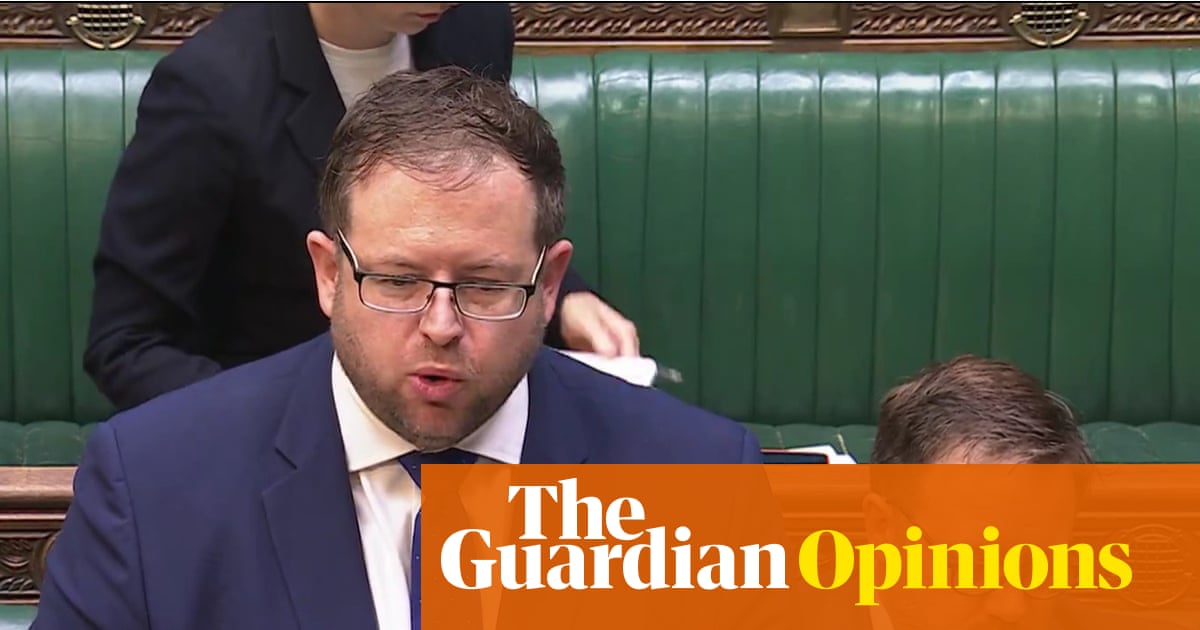It’s almost two months now since the UK supreme court ruling on what makes a woman in the eyes of the law, which was hailed as a turning point in the battle over transgender rights.
Not long enough for wounds to heal, in other words, but long enough surely to hope for a bit more clarity about what this means for everyday life: which toilets trans people can use, what this means for your local women’s running club or gym, how employers can handle sensitive situations at work without outing or humiliating trans staff in front of colleagues and customers. But instead, the waters are getting muddier with every passing week.
On Wednesday, Kishwer Falkner, now in the final five months of her term as chair of the Equality and Human Rights Commission (EHRC) watchdog, was grilled by the women and equalities select committee about the detailed code of practice she is due to submit to ministers next month, translating the ruling into everyday life. Since years of turning this issue into a political football haven’t helped anyone, in an ideal world MPs could now leave it all in the hands of a trusted neutral arbiter, and resist the urge to meddle. Unfortunately, by the end of the hearing it was clear meddling may be urgently required.
Within hours of the original supreme court ruling in April that “woman” means “biological woman” for the purpose of the Equality Act, and to the surprise of some lawyers, Lady Falkner had effectively pronounced inclusiveness dead. The EHRC issued interim guidance saying that trans people should stop using the toilets, changing rooms or NHS wards of their preferred gender – though for trans men who look male enough to be potentially frightening to women in female spaces, that’s not straightforward – and only play on the grassroots sports teams of their birth sex. But is that really what the court intended? The former supreme court judge Jonathan Sumption has already warned of the risks of overinterpreting the ruling, arguing that he took it to confirm that single-sex services are entitled to exclude trans people, but not obliged to if they don’t want to. Falkner, however, is sticking to her guns.
Suppose you wanted to start a women’s walking group, the Labour MP Rachel Taylor asked her, but you actively wanted to include trans women. Is that allowed? No, was the eventual answer: of course you can let your trans friend join, but then you’d be a mixed not single-sex group, and would have to also accept any man asking to join or risk getting sued. What the biological women in this group actually want – where they’d draw their own boundaries, or what feels right to them – is irrelevant on this reading, a position that may yet end up being tested in the courts.
How any of this might be enforced in real life, meanwhile, seems vague at best. Asked how this imaginary walking group should check that every new member was definitely biologically female, Falkner suggested they might make a judgment on sight, but that nobody was going to be walking around with badges on policing it. Similarly on toilets, EHRC chief executive John Kirkpatrick told the committee that employers would need to provide facilities securing women’s privacy and dignity, but that what that meant would vary locally and could be worked out “on the basis of trust and openness and honesty”. With a large dollop of goodwill and forbearance on all sides, you can see how that might wash – except on this issue, there’s vanishingly little of either to be found.
The most awkward question, meanwhile, is whether a battle-scarred veteran of the culture wars such as Falkner is now sufficiently trusted to write the peace settlement. Originally appointed by Liz Truss to shake up an organisation seen by the Tories as too close to Stonewall, Falkner survived both attempted mutiny inside her organisation and vicious personal abuse from outside, as she dragged it into line with what would later end up being the supreme court’s settled position: that trans women are not, in law, quite the same as biological women. She wouldn’t be human if she didn’t feel vindicated, and she was visibly emotional when the gender-critical MP Rosie Duffield (who has been through something similar) reminded her about the placards reading “the only good Terf [trans-exclusionary radical feminist] is a dead Terf” or when protesters in 2022 dumped 60 bottles of urine on her office doorstep.
But the legacy of those brutal years is that, fairly or unfairly, many trans people no longer trust the EHRC to defend their rights (as it’s mandated to do for all protected groups). Falkner brushed off the committee’s questions about that, saying she didn’t see why people “should become so fearful” when they haven’t lost any rights (technically speaking, the court merely defined what the limits of those rights were). Yet where people do and don’t feel welcome in society is determined by social norms as well as rights, and the former have swung from one extreme to the other in recent years; you don’t have to disagree with the supreme court’s ruling to see how that could be wildly disorienting.
Though Falkner suggested it would be “wise for space to be given to the regulator” to handle this – in other words, that parliament should back off – some Labour MPs are rapidly reaching the opposite view.
A law that doesn’t work in real-life scenarios is a law that doesn’t work, full stop. On this evidence, parliament should prepare to roll up its sleeves.
-
Gaby Hinsliff is a Guardian columnist
-
Do you have an opinion on the issues raised in this article? If you would like to submit a response of up to 300 words by email to be considered for publication in our letters section, please click here.

.png) 3 months ago
41
3 months ago
41

















































